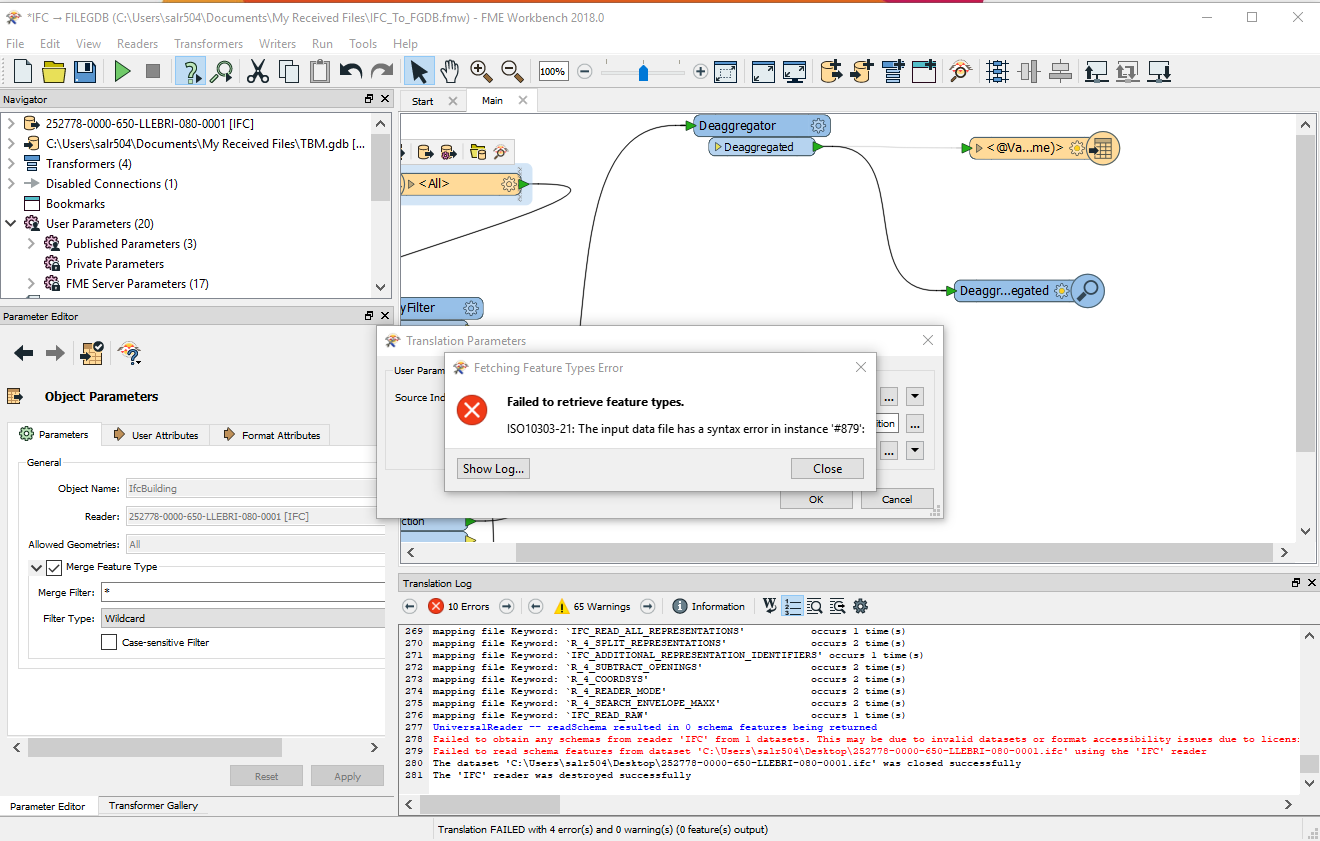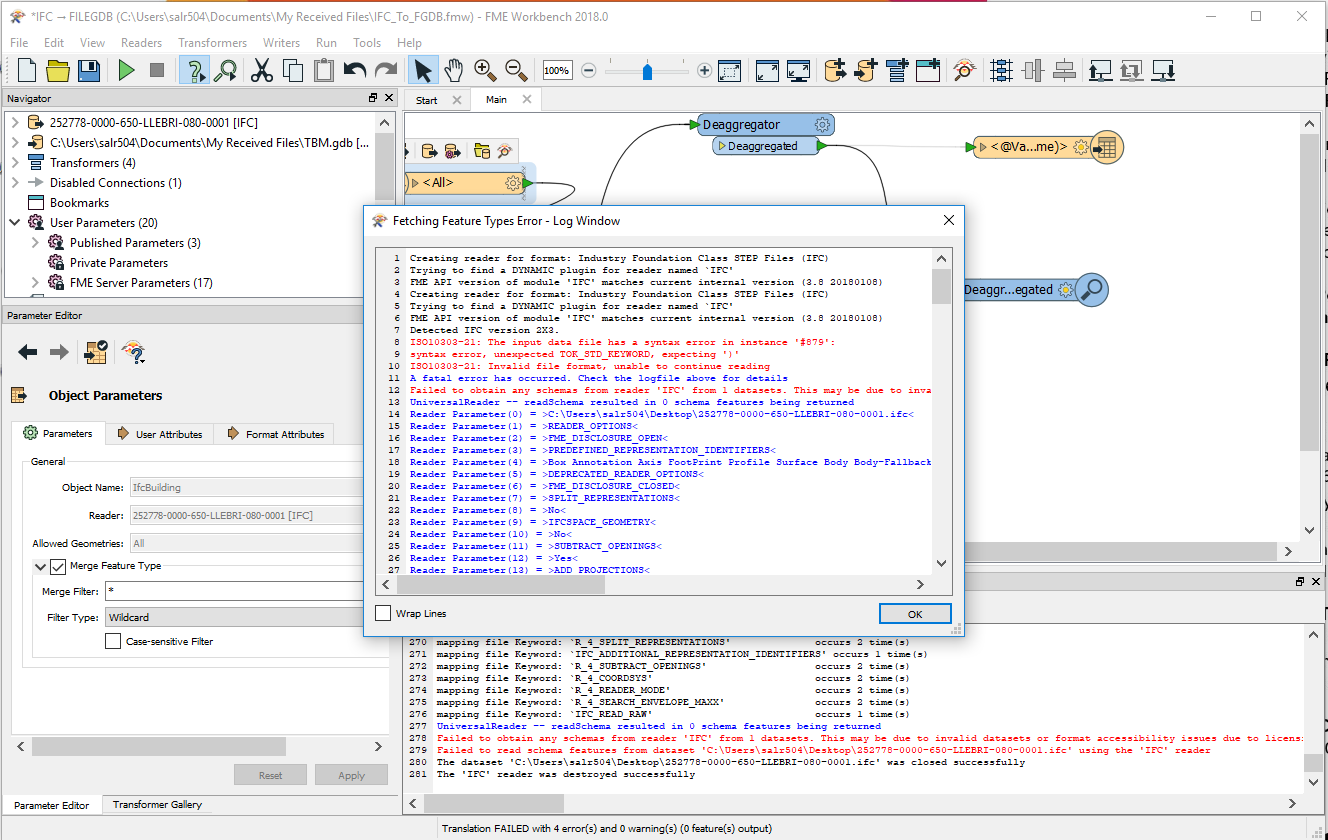Hi folks,
Each time I tried to read an IFC file in IFC reader I got an error states that “ISO 10303-21: the input data file has a syntax error in instance ‘’#879 ”


I tried several IFC files but I got the same error, how can I fix this?
Cheers,
Rawan
Hi folks,
Each time I tried to read an IFC file in IFC reader I got an error states that “ISO 10303-21: the input data file has a syntax error in instance ‘’#879 ”


I tried several IFC files but I got the same error, how can I fix this?
Cheers,
Rawan